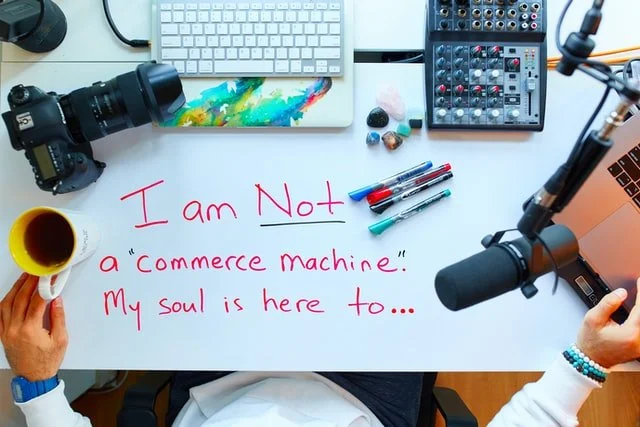People come by their anxiety honestly. They’re not irrational or self-destructive. But the reasons for their anxiety are usually opaque to them until they can develop a relationship with a therapist who can help them understand the causes of their suffering.
Finding Your Purpose In The “Great Resignation”
Many people I’ve talked to feel that they’re missing a larger sense of purpose in their lives. Being good at their jobs, and getting recognition for their work, hasn’t been enough to sustain them through these difficult times. They want to feel that they’re making a contribution to the world and not just to their company’s bottom line.
Dazed and Confused?
Having a relationship with an actual therapist is absolutely essential. A book isn’t going to respond to you in ways that make you feel that your life is important. A text can’t adequately convey tone of voice, and it certainly can’t provide you with facial expressions and other non-verbal signs that you make a difference. Only another human being can do that.
Anxiety As a Form of Love
It’s precisely because these clients love their parents that they care so much about making them happy. And it’s why recognizing that they can’t make their parents happy is so difficult for them. Giving up on the project of making their parents happy feels tantamount to no longer loving their parents. So they remain anxious as a way of continuing to love them.
Finding Your Purpose After the Pandemic
We’re in a time of tremendous uncertainty. I doubt our uncertainties will be resolved any time soon. So, I think people need to continue to try to identify what they’d like to do and who they’d like to be while taking into account that things still feel a little precarious right now. It’s really an issue of striking a balance between urgency and patience.
Two Obstacles To Finding Your Life Path (And How To Overcome Them)
If patients can have a relationship with me that makes them feel understood, taken seriously, and cared for, that experience can be the gateway to being able to find their life path and to set out on it with confidence. It’s a complicated process, and it’s not linear, but, in the end, it can provide a firm foundation for having a life of meaning and purpose.
Depression and Resilience After COVID
How Anxiety Affects Self-Esteem
Coaching Or Therapy-- Which One Will Help Me Find My Life Path?
Signs of Depression in a Time of Transition
Anxiety Symptoms In a Time of Transition
The Purpose of Life: Our Sense of Purpose and the Pandemic
Clinical Depression and COVID
Anxiety Treatment in An Anxious Time
Rising COVID rates, the election, wildfires, the economy-- all of them have been causing us stress and anxiety in the last nine months. This is on top of the stress and anxiety of working from home while homeschooling children, being an essential worker who has to go to work in a hospital or grocery store, or being laid off. If you’re struggling with anxiety during this anxious time,…
COVID, Clinical Depression, and Grief
In a recent podcast, Michelle Obama acknowledged that COVID-19, and the ongoing struggle for racial justice in America, have left her feeling depressed at times. Many people seemed to take comfort in the fact that a woman who always seems so on top of her life was struggling with the same feelings they are.
Finding Your Purpose in a Pandemic
It might seem counter-intuitive to think that you could discover your life’s purpose during a global pandemic. However, a crisis can sometimes open up possibilities that didn’t exist before. It can also help us to clarify what really matters to us. Jane Rubin, Ph.D., has more insight on finding your purpose even during a pandemic.
I’m Feeling Down During COVID. Am I Depressed?
Many people who aren’t ordinarily depressed are having low periods during this pandemic. If you’re one of them, you may be asking yourself if you’re depressed. Jane Rubin, Ph.D., talks about how to determine whether what you’re experiencing is depression or an expectable reaction to living in unsettled times.




















